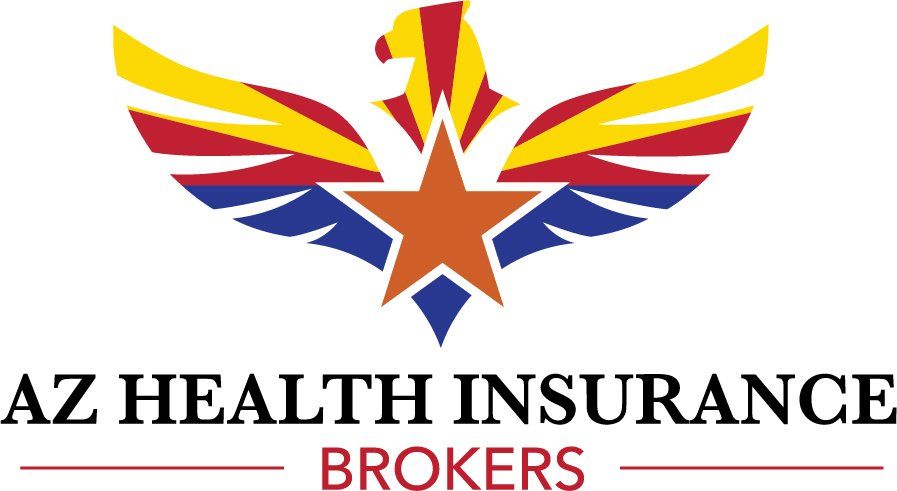Options for Group Health Insurance & Alternatives for Businesses
Group Health Insurance Options & Alternatives

Health insurance coverage continues to be a top sought-out benefit for employees in the U.S. According to a February 2023 survey by Forbes Advisor, the number one benefit employees want from employers is “employer-covered healthcare,” cited by 67% of employees, followed by life insurance. Healthcare coverage is so important to workers, 40% of employers believe workers leave their jobs to find a role that offers better employee benefits.
By offering healthcare to employees, you can increase retention and improve your recruitment efforts. Whatever size business you own, from five employees to 5,000, you have options. Consider the following choices when you’re evaluating business health insurance for your company.
Traditional Group Health Insurance
There’s a wide variety in healthcare plans for traditional group insurance. To be eligible for group health insurance, a business must have 50% of employees participating. Group insurance options include the following.
Fully Insured
With fully insured plans, the employer (and potentially the individual employee) pay an insurance premium to the insurance carrier. While on the plan, the insurance carrier is responsible to pay for medical claims that are covered in the policy’s contract, including any expenses that go beyond what the individual is responsible for in the deductible.
Fully insured plans are the most common type of insurance plans people think of when it comes to health insurance. A business owner has the ability to choose what type of coverage they want to offer, and employees have the option to enroll. Plans are based on age and county, so employees’ health conditions don’t impact premiums.
Self-Funded Insurance
With self-funded insurance, in essence, the employer becomes the insurer who is then responsible for paying for covered claims. This type of insurance may cost less up-front than fully insured plans, but it also places more risk on employers who will have to pay for claims.
For employers to protect themselves from claims that are more expensive than the insurance coverage pool they have to cover employees, the employer typically has "stop-loss” insurance in place. Stop-loss insurance covers an employer when claims exceed the pool. The employer pays a premium to obtain this insurance.
Level-Funded Insurance
Level-funded insurance is a type of self-funded insurance for small businesses that has a lower threshold for stop-loss coverage. This type of insurance can be cost-effective for small businesses with healthy employees, which can be determined by requiring employees to fill out health questionnaires before securing coverage.
With level-funded plans, if total claims costs are higher or lower than expected, the carrier may offer a premium increase on stop-loss insurance renewal, or a refund to the employer. Level-funded plans can be a way for employers to move toward self-funded insurance, with less risk.
How to Get Traditional Group Health Insurance
Business owners have several ways to get a traditional group health insurance plan for their employees. These include:
- Health insurance broker: A health insurance broker works on behalf of a health insurance company or companies and helps their clients determine the best group health insurance plan for their unique business. A broker can help a business owner save money, by identifying the most cost-effective plan that provides the coverage employees need.
- Professional employer organization: A professional employer organization (PEO) sponsors health insurance for various companies and acts as a “co-employer” when it comes to health insurance. A company may use a PEO for other functions, like human resources.
- Small Business Health Options Program (SHOP): The Small Business Health Options Program (SHOP) is a federal program for small employers who want to provide health insurance to employees. Small business owners can customize what they offer and work with a SHOP-registered agent or broker to determine coverage.
With any type of traditional group plan, employers have a wide variety of plans to choose from. You can offer as comprehensive or as basic coverage as you want, from health maintenance organizations (HMOs) to preferred provider organizations (PPOs). You can add new employees any time to a traditional group plan, which means all your employees can get coverage as soon as they begin working for you.
With traditional group insurance plans, employers need to pay at least 50% of each enrolled employee’s health insurance premium. This is a great benefit for employees, but it can also get expensive for employers, especially when spouses and children are added on to plan coverage.
One way to offset costs is to take advantage of the Health Insurance Premium Tax Credit, which is available to:
- Small businesses that have existed in Arizona for at least 1 year and
- Haven’t provided health insurance to employees for at least 6 months prior to submitting an application and
- Had at least 2 but no more than 25 employees during the most recent calendar year
When an eligible company enrolls in a business health insurance plan, the health insurer gets a credit that it passes on to the small business in the form of reduced premiums. The tax credit amounts to $1,000 per year for each enrolled individual and $3,000 per year for family coverage, or 50% of the annual premium, whatever costs less. A company can apply for renewal for subsequent years.
If your business wants options beyond traditional group insurance, there are even more options for health insurance for business available.
Individual Health Insurance for Employees
With individual health insurance, employees can choose their own plans. This can be a great route for businesses that don’t meet the 50% participation requirements of having a group plan. Individual plans can also be more cost-effective for relatively healthy employees and their families.
One popular individual health insurance plan is a health reimbursement arrangement (HRA). An HRA enables an employer to provide tax-free healthcare reimbursement to employees. HRAs may take the following forms.
Individual Coverage Health Reimbursement Arrangement (ICHRA)
With an Individual Coverage Health Reimbursement Arrangement (ICHRA), an employer sets a monthly allowance limit for healthcare reimbursement for employees. The employee can purchase individual-market insurance and get reimbursed for health insurance premiums and/or qualified medical expenses.
All reimbursements are tax-free, so employees don’t have to pay premiums with after-tax dollars. An ICHRA gives an employer the ability to choose what’s reimbursed. Employees can enroll if they want, but there’s no mandatory participation requirement.
Employers can offer an ICHRA in addition to a traditional group insurance plan. There’s no limit on how many employees may be eligible for an ICHRA.
Qualified Small Employer Health Reimbursement Arrangement (QSEHRA)
A Qualified Small Employer Health Reimbursement Arrangement (QSEHRA) is available only to employers that have fewer than 50 full-time employees and that don’t offer a group insurance policy. All full-time employees and families are automatically eligible for a QSEHRA under the same terms.
The QSEHRA has annual allowance caps determined each year by the Internal Revenue Service. In 2023, the limits were $5,850 for individuals and $11,800 for family coverage.
Other Options for Individual Health Insurance for Employees
In addition to ICHRA and QSEHRA plans under the HRA umbrella, there are also various health savings account (HSA) options employers can provide to employees. With an HSA, employees contribute money from their paychecks into the account, which they can use tax-free for qualified healthcare coverage. Employees can also contribute to an HSA, sort of like 401(k) matching.
Money in an HSA rolls over each year, so healthy employees can save their money and use it when they need it. HSA plans must be offered with an HSA-qualified high-deductible health plan (HDHP), which requires an individual to meet a deductible before additional healthcare coverage pays out.
HSA plans, as well as ICHRA and QSEHRA plans, give employers more choice in what to offer employees that makes financial sense for their business. You’re not limited to offering traditional group health insurance for employees. With alternative options available, you can evolve your health insurance offerings as your business grows.
Talk with a Health Insurance Broker to Find the Best Option
Health insurance plays a big role in retaining employees, which impacts business growth. If you want to attract leading candidates to work for your company, and keep them there, health insurance coverage is essential for today’s workforce.
You have lots of choices available. The team at AZ Health Insurance Brokers is here to learn about your unique business and provide you with all the options available to you. We’ll help you choose the most cost-effective solution for your business needs that serves your employees.
Call 602.617.4107 to talk with one of our team members. Or, email quotes@AZHealthInsuranceBrokers.com or fill out this form, and we’ll contact you.











